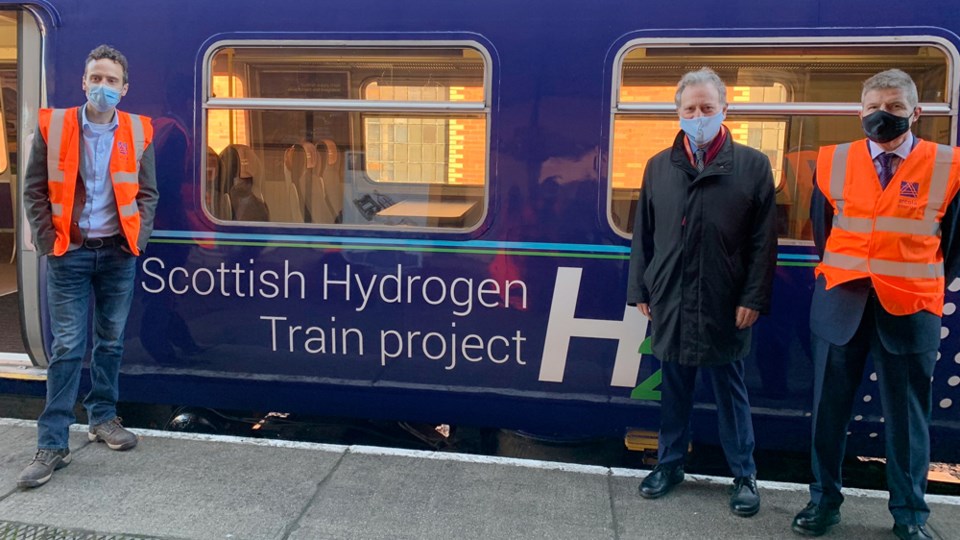It cost taxpayers almost $3,000 in airfare to send NDP Environment Minister George Heyman to last fall’s Glasgow conference to discuss cutting carbon dioxide emissions.
Heyman and two bureaucrats represented B.C. at the 26th United Nations climate change conference, also known as COP 26. The Glasgow conference was postponed from 2020 due to the pandemic. Unlike many events, it did not pivot to a web-conference, despite business travel coming under criticism for polluting the planet.
Heyman’s Air Canada booking cost $2,889 but an additional $628 charge to cancel the London portion of his trip shows up on purchasing card statements, according to documents released under freedom of information. The reason for the cancellation was not included.
Heyman and aide Kelly Sather also charged $628 for privately administered COVID-19 tests by a Victoria company, in order to satisfy United Kingdom entry requirements. Before he left, Heyman charged taxpayers $6.13 for hand sanitizer and, before he returned, $140 for a PCR test in Glasgow.
Heyman and Sather’s airfare and accommodations were booked in July for $9,071. Their required government travel authorization forms had estimated costs at $5,910 for Heyman and $6,410 for Sather for Oct. 30 to Nov. 7. They were granted per diems for meals and other expenses at the rate of GBP104.84, or approximately $178.
The name of their hotel was kept secret, as per government security policy. Based on visible directions to a train station, the hotel was near George Square, three kilometres from the Scottish Event Campus conference venue.
The third member of the delegation, Jeremy Hewitt, the assistant deputy minister and head of the climate action secretariat, estimated costs at $7,221 because he was staying until Nov. 14.
Hewitt’s assistant, Cheryl Tromp, asked conference organizers for an urgent move to another hotel, because of “the unsafe neighbourhourhood” of the original booking.
During the conference, Heyman’s administrative co-ordinator, Alyssa Hrenyk, arranged for a car at the cost of $450 to take Heyman, Sather and Hewitt to a train station in the town of Bo’ness, about 75 minutes out of Glasgow, to see a ScotRail electric train converted to hydrogen power. The train includes fuel cell modules supplied by Burnaby’s Ballard Power.
The type of car and whether it was gas or electric is not mentioned. Bo’ness has frequent scheduled rail and bus service to and from Glasgow.
The highlight of the conference, according to B.C. government announcements, was Heyman accepting the Under2 coalition award for the BC NDP’s CleanBC plan to grant $43 million to 32 pollution-reducing projects.
Heyman also Tweeted several photos of meetings in Glasgow with people from B.C. or elsewhere on the Pacific Coast, such as Washington Gov. Jay Inslee and California Natural Resources Secretary Wade Crowfoot. He also met with Chief Judy Wilson and Karissa Glendale from Alert Bay’s Namgis First Nation.
Neither Heyman nor Sather responded for comment.
The Pacific Institute for Climate Solutions 2018 report said aviation emissions account for roughly 3.5% of total human-caused warming of the planet. A World Resources Institute working paper on business travel and climate released last October said that, based on total emissions from in 2018, air travel would have been equivalent to the sixth-largest carbon emitter in the world, between Japan and Germany.
“If we are to meet Paris Agreement targets to limit global temperature increase to 1.5°C above pre-industrial levels, organizations must find effective ways to reduce business travel,” the World Resources Institute paper said.
When a reporter asked for Heyman’s travel budget for COP 26 last October, staff in the Ministry of Environment and the Government Communications and Public Engagement department refused to comment, despite being reminded of the standard pre-trip budget estimates and travel authorization filings by politicians and their staff. The freedom of information disclosure shows that Heyman and Salter’s were filed in July.
A committee of eight bureaucrats, including Sather and Hewitt, issues manager Alissa Brandt (now executive director of the BC NDP caucus), and Heyman’s other aides Desmond Pollard and Reamick Lo, were on the internal email chain.
They strategized on whether to answer questions about the budget for Heyman’s travel to the conference. After 10 days, they eventually settled on the line: “The trip is funded out of the ministry budget. Final costs will be released after all expenses are tabulated.”





